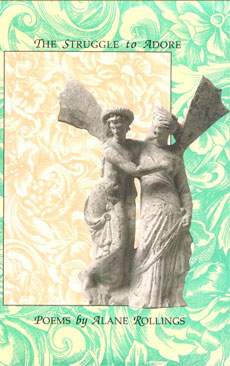
The audience sat eagerly, taking in each word and digesting it thoroughly as the poet took them into another world of imagination and deep thoughts.
Alane Rollings grew up in Savannah, Ga. and began writing poetry when she was a very little girl. When asked how she got started writing poetry, Rollings described her experience as “kind of dumb.” She explained that her parents wanted to keep her and her siblings occupied so they gave the children a contest of who could write the best poem. The prize of this contest: a Mars candy bar. That Mars bar became the incentive for Rollings to write poetry and she won that contest.
Rollings attended Bryn Mawr College and the University of Chicago where she received her master’s degree in Far Eastern Languages and Civilizations and taught some poetry courses. Rollings said she has always been fascinated with the poetry of the Far Eastern countries. She now lives in Chicago with her husband, novelist Richard Stern.
At a recent guest appearance at the Love Library, Rollings shared poems from her fifth book of poems titled To Be in This Number, which will be released to the public in February 2005. Her other books include The Logic of Opposites, The Struggle to Adore, In Your Own Sweet Time and Transparent Landscapes.
In the poems of her most recent book, Rollings incorporates her life experiences growing up in Savannah. She uses a lot of historical cues in her poems to help her readers imagine and understand what she is trying to portray. Rollings’ poems also give a strong voice to women. In one of the poems she read, she incorporated other women authors such as Virginia Wolfe and Emily Dickinson. She writes about the struggles women go through to be heard and for their words to be taken seriously.
In other poems, Rollings incorporates music and songs that add to the atmosphere of the poem. In her poem “Crossover,” she uses prominent music figures of different time periods to help the audience identify with the characters in the poem. Her use of repetition and other poetic devices gave the poem a beat that keeps your attention. In this poem, and others, there are lines from songs that hint at the issue of racism experienced in Savannah. Rollings read these lines in a singsong voice that only made the poem feel more real.
Rollings explained that her poems usually start with a single character that she imagines and then she works the poem around that character. When it came to writing about the black culture, Rollings said she used music to give her inspiration and a glimpse at how black culture is different. When she was writing the poem about the different female authors, she said, “I wanted to show that these women had things in common.” Rollings also said she gets her inspiration from authors like William Butler Yeats and Wislawa Szymborska.
With some words of encouragement for those who want to write poetry but don’t feel like they can do it, Rollings advised, “You won’t know until you try writing.”






